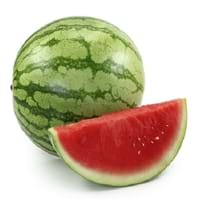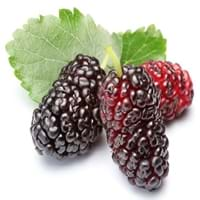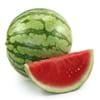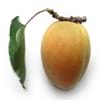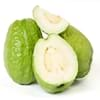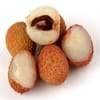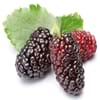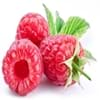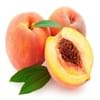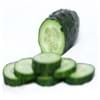Health Benefits
Anti-aging benefits, Anti-inflammatory properties, Asthma treatment, Body hydration, Cancer prevention, Digestive aid, Skin cleansing, Skin rejuvenation
Anti-aging benefits, Boosts immune system, Cancer prevention, Flu treatment, Hair care, Heart care, Improves eye vision, Increases metabolic rate, Kidney stone treatment, Maintains healthy cholesterol level, Skin cleansing, Skin rejuvenation, Treatment of common cold, Treatment of skin Diseases
General Benefits
Anti-inflammatory properties, Body hydration, Controls blood pressure, Digestive aid, Maintains healthy cholesterol level
Boosts immune system, Controls blood sugar levels, Flu treatment, Improves eye vision, Maintains healthy cholesterol level, Treatment of common cold
Skin Benefits
Anti-aging benefits, Brightens and lightens complexion, Hydrates skin
Anti-aging benefits, Skin cleansing, Treatment of skin diseases
Hair Benefits
Promotes longer and healthier hair, Regulates hair growth
Protects hair, Regulates hair growth
Allergy Symptoms
Breathing difficulty, Decrease in blood pressure, Dizziness, Eczema, Hives, Runny nose, Swelling of mouth, tongue or lips, Watery eyes
Breathing difficulty, Itching, Nasal congestion, Redness of eyes, Runny nose, Sneezing
Side Effects
Allergic reaction, Bloating, Diarrhoea, Indigestion, Intestinal gas, Nausea, Vomiting
Decrease in blood sugar levels, Allergic reaction
Best Time to Eat
As a snack in the late afternoon, Don't consume at night and before bed, Eat the fresh ones, avoid mixing with any other foods, don't eat after meal., Strictly avoid empty stomach
Best if taken as a breakfast (or empty stomach), As a snack in the late afternoon, Don't consume at night and before bed, Eat the fresh ones, avoid mixing with any other foods, don't eat after meal., Morning time (before lunch)
Vitamin B5 (Pantothenic Acid)
Not Available
Vitamin C (Ascorbic Acid)
Vitamin K (Phyllochinone)
Phytosterol
Not Available
Calories in Fresh Fruit with Peel
Not Available
Calories in Fresh Fruit without Peel
Not Available
Calories in Frozen Form
Not Available
Calories in Canned Form
Not Available
Not Available
Season
Summer
Spring, Summer
Varieties
Sugar Baby, Sangria, Golden Midget, Starlight, Jubilee, Starbrite, Extazy, Stars 'n' Stripes, Mickylee, Yellow Baby, Yellow Doll, Little Baby Flower, Sweet Favorite and Cream of Saskatchewan
Charparral, Pendula, Teas, Bellaire and Lingan
Color
Canary yellow, Coral red, Orange, Salmon yellow, Scarlet red, White
Pink, Purple, White
Origin
Southern Africa
China
Soil Type
Sandy, Well-drained
Clay, Loam
Climatic Conditions
Dry, Hot
Sunny
Facts about
- Watermelon contain 91% of water.
- In Japan & Chine, watermelon is a popular gift to bring a host.
- Entire watermelon is edible, even the rinds & seeds.
- There are more than 1200 varieties grown in the world.
- It can take up to 10 years for a tree to produce mulberry fruit.
- Mulberry leaves are fed to silkworms to enhance silk production.
- In Germany, they say that devil uses root of mulberry tree to polish his boots.
Other Countries
Algeria, Brazil, Egypt, Iran, Kazakhstan, Mexico, Spain, Turkey, United States of America
Colombia, Egypt, India, Indonesia, Kenya, Mexico, Pakistan, Peru, Russia, United States of America
Top Importer
Germany
Not Available
Botanical Name
Citrullus Lanatus
Morus Alba
Synonym
Citrullus vulgaris
Morus atropurpurea or Morus multicaulis
Subkingdom
Tracheobionta
Tracheobionta
Division
Magnoliophyta
Magnoliophyta
Class
Magnoliopsida
Magnoliopsida
Subclass
Dillenhidae
Alismidae
Order
Cucurbitales
Rosales
Family
Cucurbitaceae
Moraceae
Species
C. lanatus
M. alba
Generic Group
Gourd
Mulberry
Compare Watermelon and Mulberry
It is important compare Watermelon and Mulberry as both the fruits have a different nutritional value. Their comparison can be done on the basis of their vitamin and mineral content, calories, benefits as well as characteristics, making it easier for us to choose the best fruit for our diet. Their general health benefits are as follows:
Watermelon Benefits: anti-inflammatory properties, body hydration, controls blood pressure, digestive aid and maintains healthy cholesterol level.
Mulberry Benefits: boosts immune system, controls blood sugar levels, flu treatment, improves eye vision, maintains healthy cholesterol level and treatment of common cold.
Fruits are also used as a remedy for various hair problems. The hair benefits of Watermelon are: promotes longer and healthier hair and regulates hair growth and hair benefits of Mulberry are: protects hair and regulates hair growth. Some fruits are known to cause allergic reactions. The allergy symptoms of first fruit are: breathing difficulty, decrease in blood pressure, dizziness, eczema, hives, runny nose, swelling of mouth tongue or lips and watery eyes and the symptoms of second fruit are: breathing difficulty, itching, nasal congestion, redness of eyes, runny nose and sneezing. Get sorted Watermelon vs Mulberry comparison with the help of fruit comparison tool by fruitvs.com.
